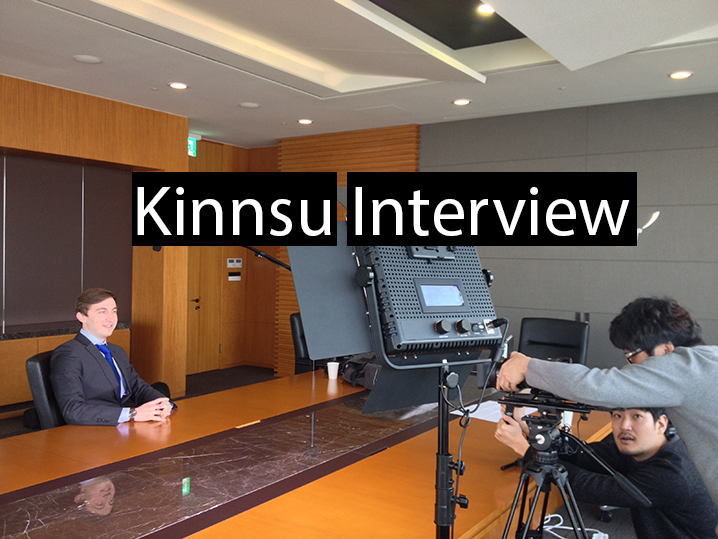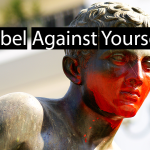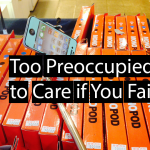Kinnsu Interview: Finance in Seoul
This interview originally appeared in Kinnsu: A Local Briefing, Business-Oriented Opinions and Insights from the Ground in April 2016.
Name: Matthew A. Morgan
Age: 28
Current Country: Seoul, South Korea
How long you have been living here for: Around 7 years off and on since 2008.
Frame of Reference: Somewhat of a third culture kid: born in France; raised in Saudi Arabia; studied and lived in the US, France, and South Korea; worked in Vietnam, South Korea, and Japan. I am also an avid traveler, and have visited nearly 40 countries. My father was a pilot so traveling was a natural part of life while growing up, which has extended into my adulthood.
Current Company and Role: Mirae Asset Global Investments, an Asian-based investment management firm, where I operate in the capacity of a Global Strategic Marketing & Business Development Assistant Manager. I also have a personal blog www.matthewonthemove.com, where I share my opinions on various evergreen topics ranging from psychology to personal growth.
Current Industry: Finance
A short summary of your work experiences: My professional experience has spanned throughout Asia. I interned with the Delegation of the European Union to Vietnam in the Social Sectors Team, worked in Korea and Japan as a business analyst for the French multinational Air Liquide, did a stint in public relations with Fleishman-Hillard, and now work in the finance vertical.
–
THE MOVE: REALITY VS. EXPECTATIONS
I first came to Korea in 2008 to study as an exchange student in Yonsei University on my brother’s recommendation (he was an exchange student in 2007 at Korea University). I had visited him in Beijing, China in 2005, so I had thought that the two would be similar. In reality, I was in for a pleasant surprise. I enjoyed my exchange student experience so much that I decided to return in 2010 with Korea University and then try the professional context. Working here certainly hasn’t been without its pains, yet by and large it has been a rewarding and enriching experience. I make the joke that Korea’s a great place to be a customer while Europe is preferable for an employee. Besides that, I very much appreciate the safety, convenience of public transport, and absence of annoyances (touts, harassment, etc.). I’ve never really encountered any major problems here, safety or otherwise. The flipside of the equation is that one tends to let their guard down and develop poor habits for traveling overseas where crime and theft are usually more common.
–
SEOUL IN A NUTSHELL
Seoul is a 24/7 always-on, lively, and dynamic city characterized by the work hard, play hard mindset where moderation is often lacking. It’s almost an intoxicating way of life where stimulation is intense and ever-present, marked by inescapable highs and lows, whether that arises from stress, alcohol-fuelled nightlife, or lack of sleep. The city itself is a captivating enigma, a collection of mini towns and sub-cultures that are neighbourhood-dependent (the quieter North vs. the upscale South), all wrapped up into one megapolis of tens of millions. The turnover among trends and venues within the city is both astounding and exciting, with the city’s tastes and preferences in a constant state of flux.
–
Seoul is a 24/7 always-on, lively, and dynamic city characterized by the work hard, play hard mindset where moderation is often lacking. It’s almost an intoxicating way of life where stimulation is intense and ever-present, marked by inescapable highs and lows, whether that arises from stress, alcohol-fuelled nightlife, or lack of sleep.
The city itself is a captivating enigma, a collection of mini towns and sub-cultures that are neighbourhood-dependent (the quieter North vs. the upscale South), all wrapped up into one megapolis of tens of millions.
–
ITS COMPETITIVE ADVANTAGE
First of all, the sheer work ethic, respect, and civility that Koreans retain have altogether served to make me a better professional. Seoul itself is a world-class centre of excellence in terms of technology, future orientation, and urban planning that have helped enhance the country’s competitiveness on the global stage. The city is rather comfortable with service at the forefront in daily life. Korean consumers are among the most demanding in the world, with countless blogs, forums, television shows, agencies, and other mediums rating and reviewing products and services, from restaurants to beauty items. Indeed, Seoul is a city that continually reinvents itself, as if pushing the fast-forward button to accelerate forward, which has kept me here for so long.
–
Indeed, Seoul is a city that continually reinvents itself, as if pushing the fast-forward button to accelerate forward, which has kept me here for so long.
–
LIFE AS A FOREIGNER
Depending on the basket of goods, life is arguably not as expensive compared to other cities and the quality of life in Seoul is fairly high. I pay less than 20% of my monthly salary on rent while Korean income taxes are at the lower end of the OECD (granted the absolute salary levels may be somewhat lower). The caveat is that family housing is burdensome as are non-conformist purchases like cheese or wine. In terms of the daily routine, weekdays are usually unpredictable and exhausting, so the weekends are when one can really unwind and take in what the city has to offer, especially when the weather is warm and sunny. I’m particularly fond of the Han River that cuts through Seoul, running on its banks and picnics in the grass feel like mini-vacations. Winter is great for skiing, while the summer provides the most diversity of recreation, such as water skiing, concerts, or other festivals.
The foreign community of young working professionals is much smaller in Seoul as it is outside of the mainstream international circuit, while the city features prominently with English teachers and American military personnel who are usually on a different tangent. I’ve been fortunate to cultivate a small group of talented and interesting individuals as friends, even if it’s recently proving difficult as more people are leaving than arriving in my friendship circle, indicative of the revolving door of expat life where people come and go. The Koreans I meet are smart, well-travelled, and multi-lingual but they are usually preoccupied with multiple commitments. As such, I normally spend more time with foreigners than Koreans but I do regularly stay in contact with people from all walks of life.
–
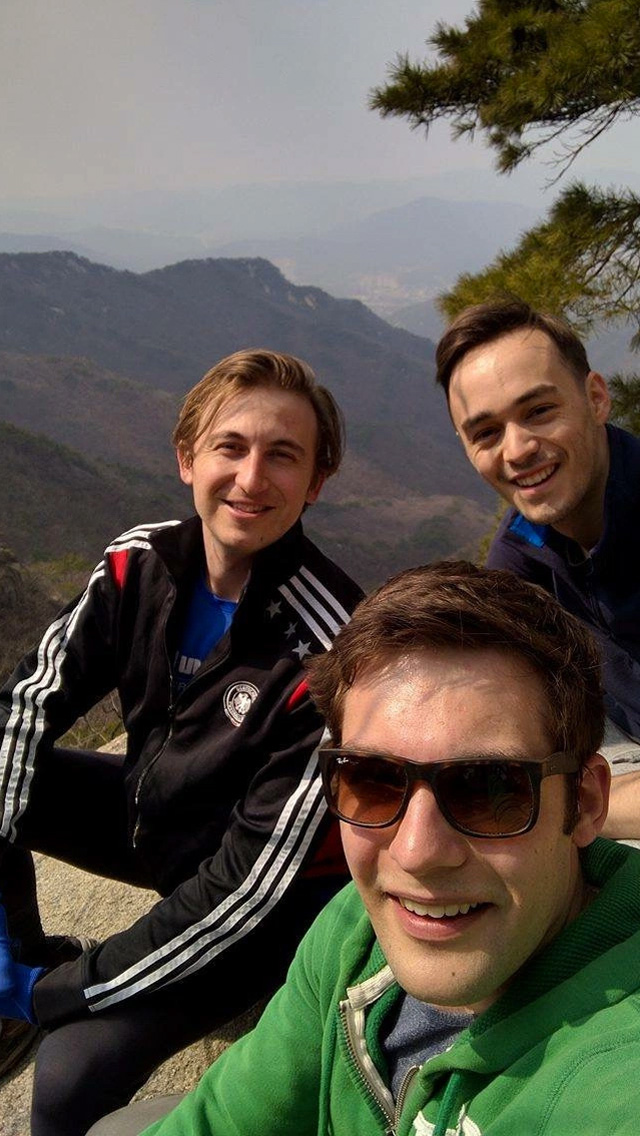 Hiking in Bukhansan National Park
Hiking in Bukhansan National Park
–
THE CURRENT BUSINESS INDUSTRIES
I actually recently wrote a piece, entitled “Korea’s Transformation,” describing the rapid, large-scale shifts and evolutions the country has undergone in the past and the implications for its potential future path ahead. Essentially, Korea has moved from a manufacturing and export-driven economy that powered the economic miracle in the 20th century to one that is more service- based.
The country was impoverished following the Korean War in the early 1950s and has since risen to become the 13th largest economy in the world as of last year: a remarkable story of growth.
Amid this backdrop, however, the heavy industries of shipbuilding, steel, and automobiles are structurally contracting against fierce competition from China and Japan. These older industries have ceded ground to new, higher-growth cultural and iconic products of entertainment, cosmetics, fashion, and tourism-related services around the “Korean Wave” in concert with innovative, R&D-intensive segments such as O2O (online to offline) platforms, mobile & cloud-related apps, smart devices, biotechnology, pharmaceuticals, electric vehicle batteries, and aerospace.
In days of past, national champions were incubated and protected by the government to groom conglomerate “chaebols.” On the other hand, the start-up / entrepreneur movement since the Great Recession of 2007-08 has been driven from the bottom-up by lower employment prospects faced by the well-educated young, a convergence of technological forces, and changing social norms and habits. To its credit, the Korean government has also been supportive through various schemes and programs to help cope with sluggish growth prospects.
–
In days of past, national champions were incubated and protected by the government to groom conglomerate “chaebols.” On the other hand, the start-up / entrepreneur movement since the Great Recession of 2007-08 has been driven from the bottom-up by lower employment prospects faced by the well-educated young, a convergence of technological forces, and changing social norms and habits.
–
THE PEOPLE
South Korean society and culture is stratified and bound by age relations that create quite a bit of contrasts. It’s worth mentioning that Korea is among the fastest aging countries in the world where fertility rates have plummeted over the past decades, posing a multitude of daunting challenges for the government, companies, and society alike as the labor force is set to shrink, which will place a greater weight of senior citizens relative to those of working age.
Personally speaking, on the odd occasion that I hike, it’s rare to see anyone under the age of 40, whereas the entertainment scene is geared towards the youth who are missing from the country’s plentiful mountains. Surely this sort of culture clash exists everywhere, yet I find that it’s much more pronounced and polarized in South Korea given the dizzying pace of economic progress and relatively nascent aspects of arts, leisure, and culture that were not as readily accessible or available to the older generation. Seoul is indeed the cosmopolitan center that differs markedly from the rest of Korea, such that it is its own ecosystem within the country.
–
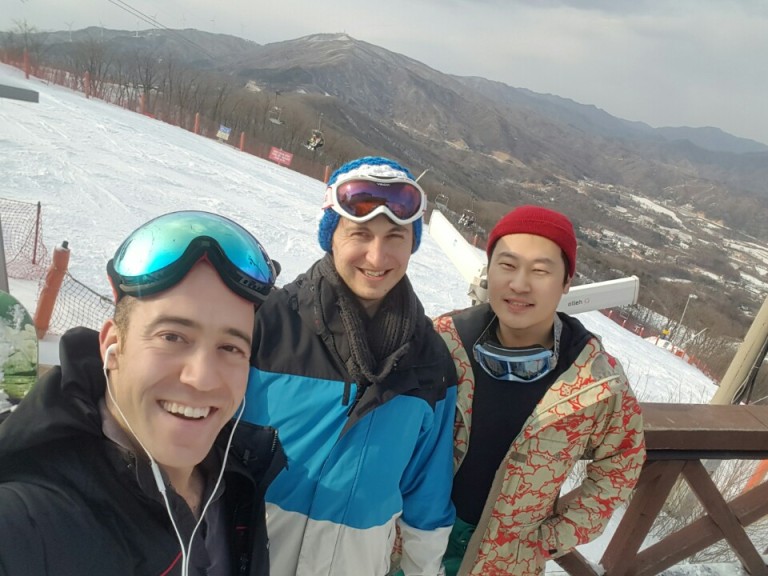 Skiing in the winter in Pyeongchang, a 3 to 5 hour bus ride away from Seoul
Skiing in the winter in Pyeongchang, a 3 to 5 hour bus ride away from Seoul
–
“Seoul is indeed the cosmopolitan center that differs markedly from the rest of Korea, such that it is its own ecosystem within the country.”
–
THE WORK CULTURE
Koreans themselves are constantly busy and occupied by social obligations from work, family, or friendships. There’s a strong overriding focus on education, qualifications, and general self-improvement from the early years of childhood that carries through to university, and into the office setting. There’s the pervasive notion of “staying ahead of the curve,” which engenders quite a harsh and competitive environment in school and in the workplace. While Korean corporate culture can be challenging, it has worked well for the country, although it is debatable as to whether it is still best suited to propel the country going forward.
With that said, I do think that there is a national dialogue and self-reflection for progress in different arenas, such as a more flexible labor force to work less hours, reduce barriers of entry for young jobseekers, and reconcile the gender inequalities against females that are present in corporations. In my opinion, this is a painful and drawn-out process that will take decades to be veritably adopted in a comprehensive manner before it can really take full effect.
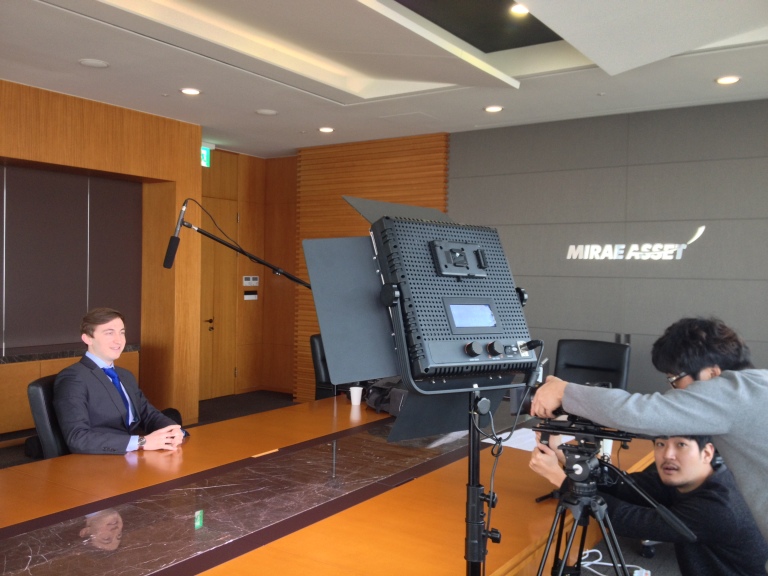 Matthew on set for a case study video produced by Google for Mirae Asset Global Investments
Matthew on set for a case study video produced by Google for Mirae Asset Global Investments
ON BUSINESS : FINANCE AND TECH
How is the Finance industry like in Seoul?
The Korean finance industry is in an earlier stage compared to developed market peers (e.g. the US), although it is a leader within Asia. There is still an investor home bias that exists, wherein domestic investments are preferred over international allocations, though this is slowly shifting as institutions and investors seek higher returns abroad. Overall, the country has learned from the 1997 IMF Crisis to build a much more resilient banking and financial system that is less vulnerable to externalities.
As someone who also consults tech startups in Seoul, tell us a bit more about the startup scene in Seoul currently as well.
By no means am I an expert on the subject, but the startup scene has picked up tremendously in the past few years, notably with Google opening its first Asia Campus for startups in Seoul last year. In addition, the Korean government established the Ministry of Science, ICT and Future Planning (MSIP) in 2013 to help facilitate the “creative economy,” a central plank underneath President Park Geun-Hye’s administration aiming to generate and capitalize on new levers of dynamism for growth. Still, a number of obstacles remain for entrepreneurs, such as the stigmas attached to failure, stifling and cumbersome regulations, and conglomerate-centric policymaking and influence in business decisions. The foreign payments startup I advised, SodaTransfer, embodies bold risk-taking in that it is questioning the status quo of high banking fees when transferring money abroad. The team at SodaTransfer is navigating a regulatory environment that had favored financial institution incumbents until now, with freshly announced reforms to make it easier for non-bank entities to facilitate such transfers, shaking up the sector for the benefit of the end-consumer.
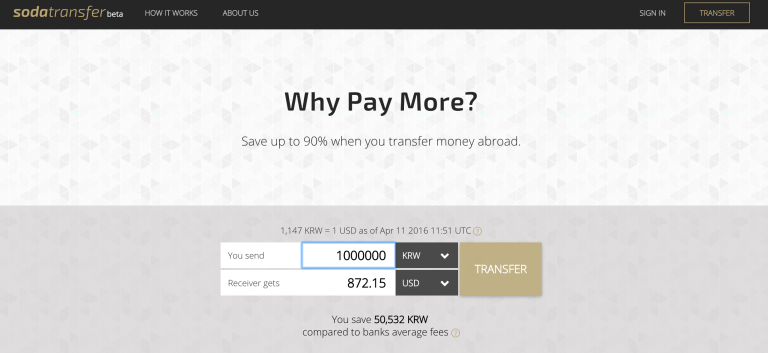 Landing page of SodaTransfer
Landing page of SodaTransfer
What do you think will be the next step in order for the above mentioned industry / industries to grow and advance in Seoul?
I think the startup industry represents a structural step-change where the bright will elect to take opportunity into their own hands instead of relying on traditional employers. It’s most likely in the infancy stages and will continue to play out for many years to come. The start-up space in Korea will definitely be one to watch with interest.
THE RANKS:
- Ease of travel/ getting around in the city – 9
- Beauty and appreciation of the city – 6
- Security – 10
- Ease of setting up – 7
- The dining, retail and lifestyle scene – 8
- Facilities and outlets to lead a healthy lifestyle – 8
- The social and networking scene – 5
- The quality of people you meet – 5
- Personal growth – 7
- Affordability – 8
Learn more about the ranking considerations here.
Follow Kinnsu for the latest updates on our Facebook page.
Related Posts
